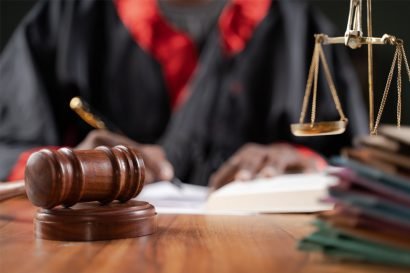When confronted with the chance of appealing a court choice, many go to the expertise of appellate lawyers. These specific legal experts handle complex post-conviction cases, requiring a methodology that is particular from trial suit. The groundwork for an appeal is fastidious and vital, guaranteeing that each conceivable point is investigated to upset or modify a lower court’s choice.
In this article, we will dive into how an appeal lawyer plans for a case in court, highlighting the special processes included and why searching out the best post-conviction lawyers in Florida is urgent.
Understanding the Appeal Process
Before jumping into the specifics of readiness, it’s fundamental to understand what an appeal involves. An appeal isn’t a re-trial however a legal process where a higher court reviews the choice of a lower court to decide whether there were legal errors that might have impacted the outcome. This review depends on the “record on appeal,” which incorporates records, evidence introduced at trial, and the material law.
Appeals are mind boggling, as they focus on legal arguments instead of new evidence. The role of an appellate lawyer is to pinpoint errors in the trial court’s procedures, whether because of wrong utilization of the law, procedural slip-ups, or distortion of legal standards.
Reviewing the Case Record
The first and most basic move toward getting ready for an appeal is an intensive review of the case record. This includes an itemized assessment of the trial records, evidence, motions, decisions, and some other pertinent documentation from the first case. The best post-conviction lawyers in Florida understand that this stage is basic; any oversight can think twice about whole appeal.
The lawyer fastidiously peruses the record, taking notes on likely legal errors or irregularities. They survey the trial court’s use of the law, searching for regions where the appointed authority might have misconstrued legal precedents or where procedural errors might have happened. This process is time-consuming and requires a profound understanding of both the specific case and the more extensive legal landscape.
Identifying Grounds for Appeal
Subsequent to reviewing the case record, the appeal lawyer identifies the grounds for appeal. These grounds are the specific legal errors that the lawyer will argue impacted the outcome of the trial. Shared beliefs include:
⦁ Misapplication of the law: If the trial court applied some unacceptable legal standard or got the law wrong.
⦁ Procedural errors: Errors in how the trial was led, like ill-advised jury directions or the affirmation of forbidden evidence.
⦁ Ineffective help of direction: If the litigant’s trial lawyer neglected to give capable representation, which harmed the case.
⦁ Insufficient evidence: Contending that the evidence introduced at trial was insufficient to help the verdict.
The best post-conviction lawyers in Florida are proficient at identifying these issues and outlining them in a manner that is compelling to the appellate court. This step is vital on the grounds that the progress of an appeal depends on the strength and clearness of the legal arguments introduced.
Researching Legal Precedents
Legal exploration is a foundation of appellate practice. When the grounds for appeal are identified, the appeal lawyer conducts broad examination to track down legal precedents that help their arguments. Precedents are past court choices that have laid out a legal standard or understanding that the appellate court is probably going to follow.
This examination includes going through case law, rules, and legal analyses to track down important precedents. The objective is to construct a strong legal starting point for the appeal, showing that the trial court’s choice was conflicting with laid out legal standards. The best post-conviction lawyers in Florida are known for their careful exploration and capacity to refer to precedents successfully, which can significantly impact the appellate court’s choice.
Drafting the Appellate Brief
The appellate brief is the essential record submitted to the appellate court. It frames the legal arguments for why the trial court’s choice should be turned around or modified. Composing a compelling brief is a work of art, requiring a mix of convincing composition, clear legal thinking, and a profound understanding of the case.
The brief normally incorporates:
⦁ A statement of the case: A summary of the trial court procedures and the choice being appealed.
⦁ A statement of the facts: A goal record of the facts pertinent to the appeal, drawn from the trial record.
⦁ Legal arguments: An itemized conversation of the grounds for appeal, upheld by legal precedents and rules.
⦁ A conclusion: A summary of the relief looked for, for example, switching the trial court’s choice or requesting another trial.
The best post-conviction lawyers in Florida are skilled at crafting briefs that are legally strong as well as connecting with and enticing. They understand that the brief is much of the time the appellate court’s first and most significant impression of the case.
Planning for Oral Argument
While not all appeals include oral argument, it is a basic piece of the process when it does. Oral argument offers the lawyer a chance to connect straightforwardly with the appointed authorities, clarifying focuses from the brief and resolving any inquiries the adjudicators might have.
Groundwork for oral argument includes practicing central issues, expecting inquiries from the appointed authorities, and creating brief reactions. The lawyer should be knowledgeable about each part of the case and prepared to protect their arguments under a magnifying glass.
The best post-conviction lawyers in Florida approach oral argument with same thinking as a trial lawyers getting ready for a jury trial. They understand that successful oral advocacy can be the game changer in a nearby case.
Collaboration and Strategy Development
Appeal lawyers frequently function as a feature of a group, collaborating with other attorneys, paralegals, and legal specialists to foster an exhaustive strategy. This cooperative methodology guarantees that each point is thought of and that the legal arguments are pretty much as strong as could really be expected.
Strategy development incorporates concluding which issues to focus on in the appeal, deciding the best method for introducing those issues, and expecting counterarguments from the rival side. The best post-conviction lawyers in Florida realize that a very much organized collaboration can significantly upgrade the possibilities of an effective appeal.
Final Word: The Significance of Expertise in Appellate Law
Appeals are a particular area of law that requires a profound understanding of legal standards, fastidious meticulousness, and vital reasoning. The readiness process is comprehensive, including a careful review of the case record, identification of appealable issues, broad legal exploration, and the crafting of influential legal arguments.
For people seeking to appeal a conviction, it is essential to work with experienced appellate lawyers who have a demonstrated history in post-conviction cases. The best post-conviction lawyers in Florida, for example, those at Brownstone Appeal Lawyers, offer the expertise and commitment expected to successfully explore the intricacies of the appellate process.
Brownstone Appeal Lawyers are perceived for their obligation to excellence in appellate work on, giving clients the best conceivable representation in their quest for justice. Whether you are appealing a criminal conviction or a civil judgment, cooperating with skilled appellate attorneys can have a significant effect in the outcome of your case.




